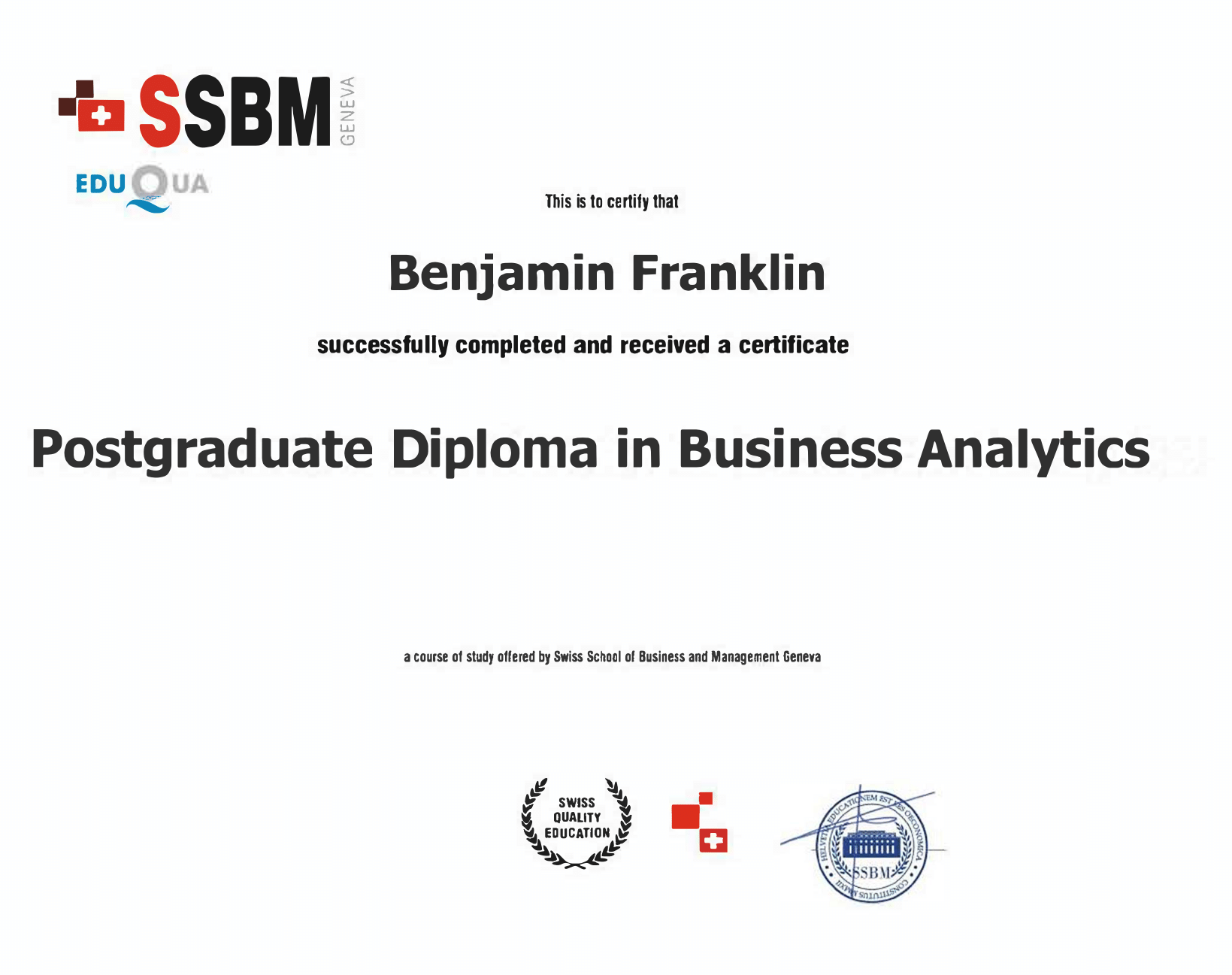Your cart is currently empty.







Kickstart your career in business analytics through SSBM’s Post Graduate Diploma in Business Analytics. Master the core business analysis skills with numerous industry-based case studies and projects from Switzerland.
Learning Format
Online
Live Classes
7 Months
Career Services
by Intellipaat
SSBM Diploma
Certification
EMI Starts
at ₹8,000/month*
Read More
About Swiss School of Business and Management, Geneva (SSBM )
SSBM is a renowned college in Geneva, Switzerland and is known for its Swiss-quality education and excellence all over the world. The institute has partnered with over 30+ top companies for designing its courses and has a remarkable set of powerful alumni across the globe.
Key Achievements:
Upon completion of this course, you will:
Skills to Master
Data Exploration
Data Aggregation
Data Visualization
Business Analysis
Data Analysis
Decision making
Data Processing
Querying
Databases
Machine learning
Tools to Master

Admission Details
The application process consists of three simple steps. An offer of admission will be made to selected candidates based on the feedback from the interview panel. The selected candidates will be notified over email and phone, and they can block their seats through the payment of the admission fee.
Submit Application
Tell us a bit about yourself and why you want to join this program
Application Review
An admission panel will shortlist candidates based on their application
Admission
Selected candidates will be notified within 1–2 weeks
Total Admission Fee
EMI Starts at
We partnered with financing companies to provide very competitive finance options at 0% interest rate
Financing Partners
![]()
Admissions close once the required number of students is enrolled for the upcoming cohort. Apply early to secure your seat.
| Date | Time | Batch Type | |
|---|---|---|---|
| Program Induction | 19th July 2025 | 08:00 PM - 11:00 PM IST | Weekend (Sat-Sun) |
| Regular Classes | 19th July 2025 | 08:00 PM - 11:00 PM IST | Weekend (Sat-Sun) |
The course instructors of this post graduate diploma in business analytics are experts and leading academicians from SSBM Geneva and professionals at Intellipaat.
Upon completion of the training and successful completion of the capstone project, you will receive a post draduate diploma in business analytics from SSBM.
This post graduate diploma in business analytics is conducted by leading experts from SSBM and Intellipaat who will assist you in kick-starting your career in the domain of business analytics through the vast industry-relevant experience that they carry.
Also, the course curriculum along with videos, live sessions, and assignments will help you gain in-depth knowledge in data analytics and business analytics, apart from providing hands-on experience in these domains through real-time projects.
If you fail to attend any of the live lectures, you will get the recorded session in the next 12 hours.
To register for the program, you can reach out to our course advisors.
What is included in this course?
 Click to Zoom
Click to Zoom











